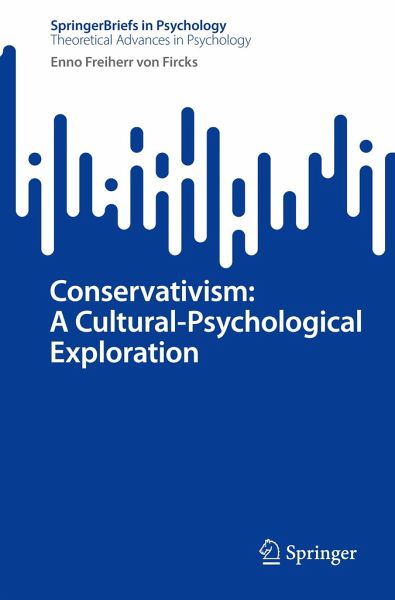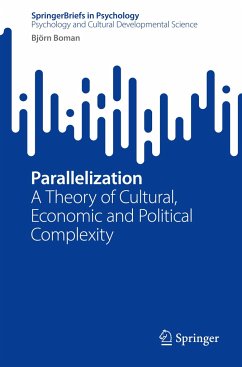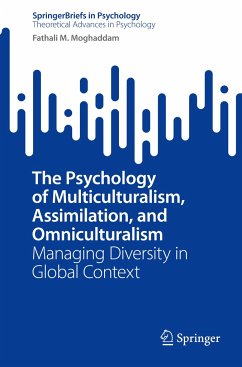
Conservativism: A Cultural-Psychological Exploration

PAYBACK Punkte
19 °P sammeln!
The present work discusses the phenomenon of conservativism from a qualitative, cultural-psychological perspective. As such, the text breaks with current mainstream research about political ideologies wanting to assess a political culture within the simple administration of a questionnaire. The SpringerBrief will oppose such a perspective trying to assess how the conservative-minded person will structure space and time in peculiar ways. In the first part of the study, participants were invited to reflect about how they preserve or conserve meaning in various activities whereas the second part ...
The present work discusses the phenomenon of conservativism from a qualitative, cultural-psychological perspective. As such, the text breaks with current mainstream research about political ideologies wanting to assess a political culture within the simple administration of a questionnaire. The SpringerBrief will oppose such a perspective trying to assess how the conservative-minded person will structure space and time in peculiar ways. In the first part of the study, participants were invited to reflect about how they preserve or conserve meaning in various activities whereas the second part of the study tried to shed light onto how something preservable or conservable comes into being and what it actually makes it preservable. Here, an autoethnographic study revealed that something becomes meaningfully preservable when it satisfies multiple demands of the Self as well as of the environment. Readers will realize the insufficiency of the positivistic attitude analyzing conservativism from a simple quantitative perspective, and researchers are shown how political ideologies or cultures can be assessed ecologically - something that has not yet been undertaken. This leads to an appeal for scientists to study the phenomenon of conservativism more wholistically.














